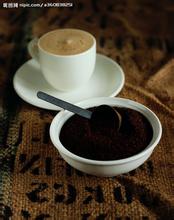El Salvador Coffee Manor introduces the characteristics of El Salvador Coffee Mercedes Manor
A brief History of Coffee production
In 1742, coffee was introduced to El Salvador from the Caribbean (1740).
In the mid-19th century, El Salvador's original export pillar Indigo (one of the dyes) received a gradual decline in the development of synthetic dyes in Europe, and coffee gradually became the main export product under the guidance of the government.
In 1856, the first 693 bags of coffee beans were shipped to Europe. Europe was El Salvador's chief coffee customer until World War II, which was replaced by the United States after World War II.
In the 1970s, El Salvador produced a record 350000 bags of coffee. With the intensification of the civil war, the coffee industry was in turmoil.
Coffee production in El Salvador was once affected by domestic political instability. In 1992, the parties signed a peace agreement and the civil war was suspended. The coffee industry began to recover.
Present situation of coffee production
"natural and man-made disasters" and "ill-fated" are the most appropriate words to describe the challenges facing the coffee industry in El Salvador. Despite the haze of war, El Salvador's coffee production still faces challenges from time to time, including: 1998, hurricanes; 2001, earthquakes; 2002, volcanic eruptions; 2012, leaf rust.
Despite the challenges, El Salvador maintained a high level of coffee production, according to ICO International Coffee Organization, from 2008 to 2012, total coffee production in El Salvador remained at the Top15 level among ICO member countries. In 2013, affected by the leaf rust disaster, 70% of domestic farms were infected, and the output dropped sharply by about 40%, falling to 16.
El Salvador 08-13 Coffee production and ranking (in thousand bags, per bag of 60kg) Civil War caused chaos and affected economic development, but ironically allowed the ancient coffee species to be preserved, and the situation was so chaotic that coffee producers in El Salvador failed to catch up with the renewal of coffee varieties in Central and South America.
El Salvador produces 100% Arabica coffee, of which 68% is Bourbon, Coffea arabica var. Bourbon), 29% Pacas, other varieties including Pacamara,Caturra, etc.
The Pacas variety, first discovered in El Salvador in 1949, is a natural hybrid between bourbon and Catura.
The variety Pacamara, which was artificially bred by pacas and maragogipe (or maragogype), was first bred in 1958 (1954). Pacamara species is a rare artificial breeding of excellent varieties, blue is better than blue, perfectly inheriting the advantages of the mother plant, both the excellent taste of pacas species, raw bean granules also inherited the large size of malagogipe. The Pacamara species is thought to be the result of the pursuit of large Arabica species.

Important Notice :
前街咖啡 FrontStreet Coffee has moved to new addredd:
FrontStreet Coffee Address: 315,Donghua East Road,GuangZhou
Tel:020 38364473
- Prev

Nicaraguan Coffee Manor introduces the characteristics of Nicaraguan Coffee in Nicaraguan Coffee producing area
Nicaraguan coffee Nicaragua coffee flavor characteristics: moderate acidity, fragrant and delicious. Nicaraguan coffee of high quality is in the forefront of coffee beans in the world and enjoys a good reputation. Its particles are moderate in size, mild in taste and very aromatic and mellow. Nicaragua is located in central Central America, bordered by the Pacific Ocean to the west and the Caribbean Sea to the east. The highlands in the north and the coastal plains in the east
- Next

Panamanian coffee features jadeite manor Panamanian coffee bean flavor Panamanian coffee flavor
The BOQUETE region of Panama, located in the province of CHIRIQUI on the border with Costa Rica, is the home of Panama's famous GEISHA coffee and is famous for producing high-quality Arabica coffee. Tedman & TEDMAN&MACINTYRE ESTATE Manor in the mountains 4000 feet above sea level in Poggett, originated in Panama
Related
- Does Rose Summer choose Blue, Green or Red? Detailed explanation of Rose Summer Coffee plots and Classification in Panamanian Jade Manor
- What is the difference between the origin, producing area, processing plant, cooperative and manor of coffee beans?
- How fine does the espresso powder fit? how to grind the espresso?
- Sca coffee roasting degree color card coffee roasting degree 8 roasting color values what do you mean?
- The practice of lattes: how to make lattes at home
- Introduction to Indonesian Fine Coffee beans-- Java Coffee producing area of Indonesian Arabica Coffee
- How much will the flavor of light and medium roasted rose summer be expressed? What baking level is rose summer suitable for?
- Introduction to the characteristics of washing, sun-drying or wet-planing coffee commonly used in Mantenin, Indonesia
- Price characteristics of Arabica Coffee Bean Starbucks introduction to Manning Coffee Bean Taste producing area Variety Manor
- What is the authentic Yega flavor? What are the flavor characteristics of the really excellent Yejasuffi coffee beans?

